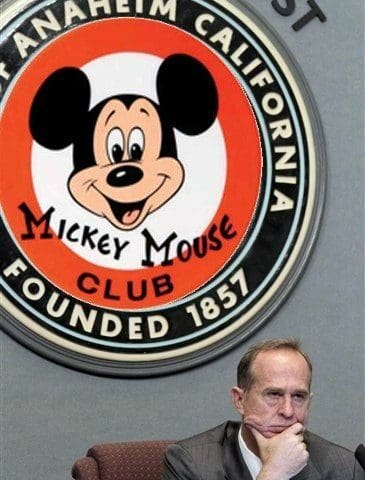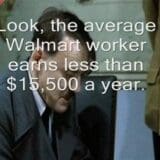

 (This is the last in a three-part series about the misclassification of employees as independent contractors – a practice which affects millions of workers in the U.S., including most of the nation’s nearly 100,000 port truck drivers.)
(This is the last in a three-part series about the misclassification of employees as independent contractors – a practice which affects millions of workers in the U.S., including most of the nation’s nearly 100,000 port truck drivers.)
An illegal practice as systemic and widespread as independent contractor misclassification suggests a collective failure of enforcement. Given the huge fiscal, human and environmental costs, what can be done to ameliorate this failure?
The problem is not that the practice is permitted under current law. On the contrary, the phenomenon is referred to as misclassification precisely because it involves the systematic violation of employee protection laws, justified by re-labeling employees as independent contractors.
Employers misclassify workers essentially because 20th century mechanisms of enforcement have not caught up with this spurious 21st century “business practice.” Lawsuits are expensive, time-consuming, risky and subject to a massive justice gap between industry and workers.
» Read more about: The Fix: Restoring the Rights of Misclassified Workers »


New headlines have emerged almost daily in the explosive weeks following the death of Manuel Diaz, who was unarmed when Anaheim police shot him on July 21st.The night after Diaz’s death, police shot and killed Joel Acevedo — the fifth fatal officer-involved shooting in Anaheim this year. A city council meeting set for Wednesday afternoon (August 8th) at Anaheim High School’s 1,300 seat auditorium is expected to be overflowing. The mayor, the police chief, angry residents—all make the news reports.
But Anaheim’s most high-profile denizen has stayed out of the spot light. “The Mouse”– Disneyland and Disney Corporation – has wisely avoided taking a high-profile stand that would mix the Disney brand with news of conflict and racial strife in Anaheim, where tourism is king.
While Disney doesn’t govern police policy (although some residents argue to the contrary, citing Disney’s influence in the city), The Mouse does unquestionably wield major influence in shaping Anaheim’s economic development gestalt,


On the heels of Walmart’s 50th birthday, several writers have examined the outsized wealth accumulated by six members of the Walton family, the clan that exercises controlling interest over the retail giant. The University of Californian, Berkeley’s Sylvia Allegretto, for example, has written that even as their fellow members of the Forbes 400 club lost wealth between 2007 and 2010, the Walton heirs actually accumulated more.
Meanwhile, Josh Bivens of the Economic Policy Institute notes the Walton family wealth is now “as large the bottom 48.8 million families in . . . wealth distribution (constituting 41.5 percent of all American families) combined.” We took a few of these stats to have some fun picturing how they might play out back at Walmart HQ in Bentonville, Arkansas.


(This is the second in a three-part series about the misclassification of employees as independent contractors – a practice which affects millions of workers in the U.S., including most of the nation’s nearly 100,000 port truck drivers.)
Within the major trifecta of tactics used by today’s employers to slash the cost of labor and to maintain pre-New Deal levels of control over their workers, independent contractor misclassification is perhaps the most powerful and ubiquitous. (The others are the sub-contracting of essential functions and the use of temporary workers.)
Each of these ways of doing business damages the economy, suppresses wages for all workers and undermines popular and well-established laws designed to protect them. Yet independent contractor misclassification stands out in terms of its sheer boldness. When used as a shield against employer obligations by key industries (rather than a genuine administrative mistake by “Mom and Pop” shops) it’s a defiant avoidance of the hard-won,
» Read more about: Name Games: The Cost of Independent Contractor Misclassification »


John Hariel has an electric personality – perfectly appropriate for a man who is helping to wire Los Angeles.
A general foreman with the International Brotherhood of Electrical Workers (IBEW) Local 11, Hariel – known to everyone as Big John – has spent the last two decades building L.A.’s infrastructure. He’s a natural leader blessed with an entrepreneurial mind, an activist heart and the body of a Mac truck.
Big John has deliberately reached out to women and men from disadvantaged communities, mentoring them to become strong leaders, parents and citizens. Frying Pan News recently got a chance to talk with members of his wonderfully eclectic electrician crew, all of whom are working on the Martin Luther King Jr. hospital renovation in Watts, which is covered by a project labor agreement and local hire agreement. The team included several women electricians and members from all ethnic backgrounds, reflecting the impressive diversity of L.A.’s construction workforce.


(This is the first in a three-part series about the misclassification of employees as independent contractors – a practice which affects millions of workers in the U.S., including most of the nation’s nearly 100,000 port truck drivers).
At the zenith of the Occupy movement, some commentators adopted the term “neo-feudalism” to describe the relationship between powerful corporations and the rest of society. Did this rhetoric have a basis? Yes and no. A portion of today’s workforce labors under conditions that resemble the dark era of the 19th century more than they do either the medieval or the modern one.
First, a little background. In the social and legal world of medieval England (which, for better or worse, begat our legal system), one’s employer was one’s master, landlord, and protector – and all these relationships were encased within the Church and the great chain of being.


(In today’s Los Angeles Daily News, staff writer Dakota Smith reports on one of the city’s most promising initiatives — an energy efficiency program that is saving consumers money, creating jobs and reducing our energy use. The project, a partnership between the International Brotherhood of Electrical Workers Local 18 , the union representing the utility’s workers, and the Department of Water and Power, has received strong support from RePower LA, a broad-based coalition that promotes the economic and environmental benefits of energy efficiency.)
Lorraine Cannon stretches every dollar. The 84-year-old lives off a monthly retirement check from L.A County, and she shares her Pacoima house with her granddaughter and three young great-grandchildren.
But now helping to pay the bills is an unlikely source: the Los Angeles Department of Water and Power.
Cannon’s house was picked for an energy efficiency makeover by the department,


On a day when the number of unemployed Americans ticked up to 8.3 percent, it’s worth checking out an ongoing project of Marketplace. The American Public Radio program has been inviting readers to contribute images and comments they believe capture the essence of what it means to be middle class.
“We spend a lot of time talking about the middle class,” says Marketplace. “What it is, who’s part of it, why it matters. Now it’s time for you to tell us.”
The photos range from retro black-and-whites to current digital snaps, and the contributors run the gamut from retirees to students, from the complacent to Occupiers. The contributors’ comments are often more poignant than the images. One young Virginian submitted a grim watercolor of a man carrying a sign reading, “Out of Confidence.” As the contributor explained:
“I do not consider myself middle class at the moment.
» Read more about: WebHot: Marketplace’s Middle Class Photo Project »


Hundreds of millions of tons of goods enter the United States every year through our nation’s busiest ports in Long Beach and Los Angeles. Containers are then trucked through the Los Angeles basin to the Inland Empire, San Bernardino and Riverside counties, where roughly 85,000 warehouse workers, mostly Latino, unpack and reload items onto trucks destined for retail outlets.
The explosion of “domestic outsourcing,” the aggressive practice of contracting warehousing, transportation and goods delivery to a complex hierarchy of contractors and subcontractors, has lowered the quality of jobs in Southern California and disproportionately impacted working Latinos here, many of whom move goods for Walmart and other giant retailers at these subcontracted warehouses.
That’s why Warehouse Workers United [has] launched a new Web series: “Voices/Voces from the Warehouse,” which features real workers in Walmart-contracted warehouses recounting their personal experiences and stories from the warehouse where they work.
In the first episode,
» Read more about: Warehouse Workers' Stories Heard in New Web Series »


The L.A. Times story about fish Down Under getting skin cancer could’ve been a funny, though macabre, read if the subject weren’t so sad. After noting that 15 percent of coral trout in Australia’s Great Barrier Reef are believed to have cancerous lesions on their scales, writer Jon Bardin adds, “In that regard, they resemble Australians who live on land — two in three people who live down under will be diagnosed with skin cancer before the age of 70, the highest rate in the world.”
This is serious news, though, because the takeaway goes beyond the fact that Aussies won’t be throwing coral trout on the barbie any time soon. The fishes’ affliction apparently stems from their habitat, which lies under the outer fringes of the giant Antarctic ozone hole that’s been letting in ultraviolet rays since the invention of refrigerants. These UV rays are strongly suspected of causing the trout’s melanoma – as they are of causing it in humans.